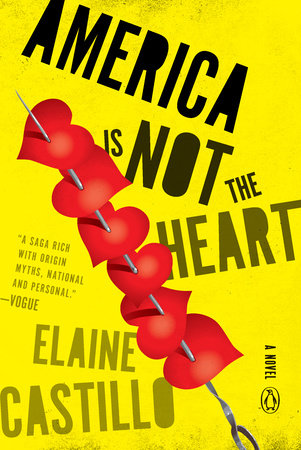America Is Not the Heart Reader’s Guide
By Elaine Castillo


1. The epigraph of the book is the quote from Carlos Bulosan’s America Is in the Heart: “I knew I could trust a gambler because I had been one of them.” Why do you think the author chose this particular quote as the epigraph?
2. Though most of the novel is narrated in third person, it begins in the second person “you” perspective. Discuss why the novel begins this way.
3. How does the novel’s prologue shape your reading of the rest of the novel?
4. The author incorporates dialogue in Tagalog, Ilocano, and Pangasinan throughout the novel, often without translation. What effect does this have? Why do you think the author chooses not to translate some of this dialogue?
5. On pages 363–64, Adela gently chastises Hero for not fully understanding what it means to heal. She asks Hero to think about whether Roni is “sira”—broken, damaged. What is Adela trying to tell Hero? What does it mean to be healed?
6. In the last scene of the novel, Paz, Pol, Hero, and Roni are all together, eating pancit. Discuss the role of food in the book.
7. Language has historically been a tool of colonization. Refusing to follow the “correct” usage of a colonizer’s language can, in many ways, be interpreted as a form of resistance. How does the author challenge or subvert the traditional rules of the English language in the novel?
8. In an interview, the author has said: “There are two stories you need to know about your characters: the one they tell themselves, and the one they actually inhabit.” What stories do you think Paz, Hero, Rosalyn, and the other characters in this novel tell about themselves? What stories do they actually inhabit? Is there a difference?
9. Would you consider this a political novel? Discuss why or why not.
10. The title of this book is inspired by Carlos Bulosan’s semi-autobiographical novel America Is in the Heart. Why do you think the author named her book America Is Not the Heart? How does this title fit the novel as a whole?
11. What do you think America means to the different characters in the novel—to Hero, Paz, Rosalyn, Roni, Pol?
Just for joining you’ll get personalized recommendations on your dashboard daily and features only for members.
Find Out More Join Now Sign In